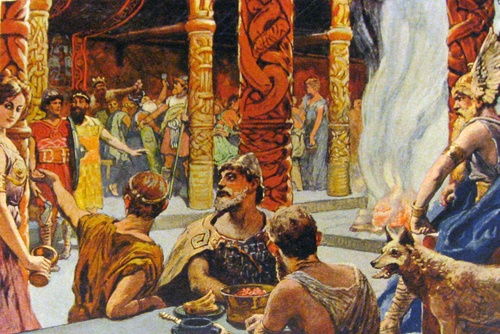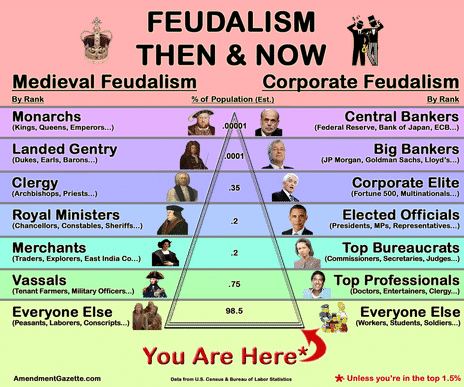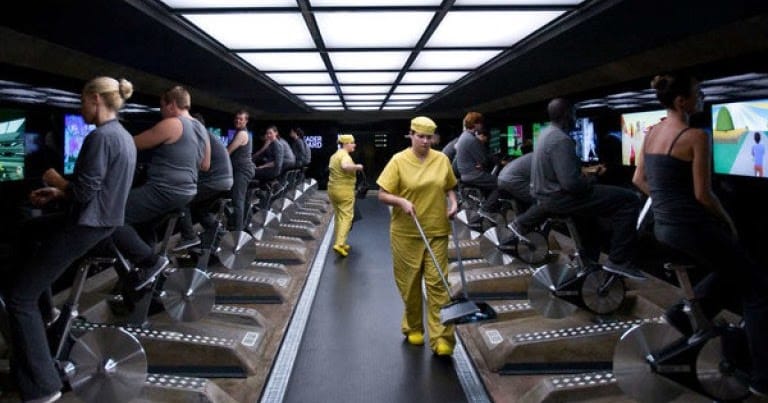History is Mythology
In the modern era, where everyone is beginning to become aware not only of fake news, but the whole idea that people create their own reality, it’s important to point out that history is also fiction – history is mythology. It’s not just similar to mythology. It is literally mythology. Sure, we can talk about folk tales like George Washington chopping down the cherry tree and saying he can’t tell a lie and easily understand that as mythology, but I’m going much farther than that. Not only is that mythology, all history, everywhere, around the world, is a completely mythologized fabrication made up to underpin a nationalistic or ideological framework.
First, we’re all well aware of the old saying “History books are written by the winners,” and we know it to be true. We know that China’s history books make no mention of the Cultural Revolution. We know that Japan’s history books conveniently leave out the Rape of Nanjing. U.S. history books certainly don’t go into great detail about our geopolitical malfeasance in places like South America or the Middle East. This extremely obvious rewriting of history, by itself, converts “history” into “mythology” by its very nature of lionizing certain protagonists over telling the truth.
But, you might object, surely there are historians who study history at a high level who have the true understanding of history. This is also nonsense. Not only is most history at the high level the subject of contentious debate and further mythologized by being read through post-modern interpretive frameworks (by another name, literally the practice of ‘the winners rewriting history’) and being parsed and re-litigated to mold the truth for a purpose, we’re actually incapable of knowing true history.
The methodology for interpreting most history is by triangulating events through as many published primary sources as people can get their hands on. This is how we know about things like the Trial of Socrates, or the personality of Genghis Khan. However, when we think about that, keep in mind two things we know about the modern era: “official primary sources” are often complete lies, and the reality of our modern times, where events are recorded more stringently than ever before in history, is a reality people can’t agree on and that’s taking place right now, not generations into the past.
We have primary, official sources and tons of data to triangulate what’s happening currently and most of what we believe about right now is nonsense; how can we be so sure that the much less sophisticated, just as manipulated sources of thousands of years ago paint an accurate picture of reality? We can’t. They say, for instance, that Socrates was executed for heresy and corrupting the youth; how likely, given what we know about how the powerful operate today, do you suppose he actually just fucked someone’s wife or insulted a powerful landowner and they brought the institutional hammer down on him?
I’m not saying that’s what happened; I’m saying that what we’re told happened is an unverifiable story that is taken from sources which, given what we know about similar sources today, are almost assuredly ancient PR and then that dubious story is twisted by academic authorities into a neatly packaged fable that is used to reinforce an ideology — in this case, “secularism is peace-loving truth and religious figures are bloodthirsty barbarians”.
Think about all the things that people believe today and what ideologies they conveniently reinforce. Which historical figures you’re aware of, and which ones you’re not, and what they stand for and what they’re used to justify. There’s almost a 0% chance any of those people were actually anywhere similar to how they’re described or depicted, there is absolutely no way for you to know whether those depictions were correct, because you rely on faith in academia and even if you were in academia, you would be embroiled in contentious debate about which sources were accurate vs inaccurate and, at best, threading a needle with invisible thread.
Let’s talk about another thing. Think about the expanse of human history. 200,000+ years of humans doing things. Now think about right now. Think about the other day at the office when you had a great idea and so and so, your corporate rival, said exactly the same thing twenty minutes later and got credit and not you. Now imagine how many times that’s happened throughout history. For instance, Steve Jobs didn’t invent the iPhone. It was actually quite a bit more complicated than that. But this is the collectivized myth that we believe. Why do we believe it? Essentially, because it’s simple and it gives us a hero to believe in. It is literally a myth, by which I mean not only is its form that of a myth, but its function in society is that of a myth as well.
Simplicity is the most important aspect of what I’m discussing here and I’ve saved it for last. Basically, as I mentioned, think about the entire expanse of human history. There’s no way for you to remember all of it. The human mind isn’t capable of retaining that amount of knowledge. Even if the primary sources weren’t ancient PR, even if the people interpreting those sources didn’t have agendas, even if truth were freely available and everything you read on the internet didn’t have to get filtered through a strong and polished bullshit detector, there’s no way you could hold onto and interpret the entire expanse of human history. It’s just too much data for the human mind.
So you simplify it. And in simplifying it, what you’re doing is you’re creating a functional framework that is useful to you in how you live your life. A framework that you can use to justify your decisions, your ideology, your career choices, and to interpret a stable reality out of an expansive, incomprehensibly large reality that is so vast and unknowable that its infinite chaos would send you spiraling into existential ennui forever. So you choose a history that is interpreted for you by your nation, your culture, your subculture, and so on. You selectively choose which characters from history to remember and which to forget, and which aspects of which characters to remember and which to forget.
Even if there was a person with an infinite memory, infinite processing power and incorruptible objectivity, that person’s objective view of history would only be true insofar as his media power allowed him to spread that truth. So the truth becomes indiscernible from myth, and thus, becomes functionally no different. And even if that person did gain the authority to distribute that true history as truth instead of mythology, information, like any other good, is subject to distribution inefficiency. Smart people may read that person’s detailed account, but just a few rungs down it’s distributed as a movie with dumbed-down dialog and all the nuance stripped out and the character looks like a modern model from Silverlake, California.
So in conclusion, all history is mythology. It is just an extremely limited framework of folk tales you tell yourself in order to make sense of a reality that you don’t truly comprehend even a small fraction of and to justify the morality and actions of tribes to which you belong that fate prescribed to you at birth. And if someone did, impossibly, know true history, it would be indiscernible from myth and thus, also myth.
Welcome to the 21st century. Nothing is guaranteed to be real. Not what you can see, not what you can touch, not even your own experiences. It will only get stranger from here. Just wait until we figure out that whether we live in a simulation or not, we’re perfectly capable of creating simulated realities in which to live. In fact, we already do it.
So many of us live in completely different realities. I live in a reality where China conscripted children into Red Guard soldiers and systematically destroyed all the cultural landmarks, religious buildings and museums they could find. Many in China live in a reality where that’s a fictional event made up by Western powers to undermine the legitimacy of the ruling party. We might as well be on holodecks, in literally different realities. And we will be, soon enough.
I’m not suggesting that we fix history.
I’m suggesting that we start getting a lot more comfortable with the idea that none of us has a very firm grasp on reality whatsoever. Our reality is unknowably infinite, including our own history: it’s time we get a lot more comfortable with the fact we create our own flawed, reductivist, biased frameworks to make sense of our realities and evolve our discernment away from ‘where does this information fit into my framework?’ to ‘my framework is total fiction and I can believe whatever I want that improves my outcomes.’
Does your framework of history add to the cessation of suffering for yourself and other humans? The mythology that is your history, your memories, your cultural programming, whatever it is… if not, junk it. It’s all bullshit anyway.








